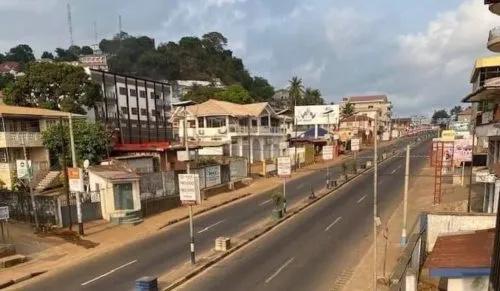Here is an article on how Loans Drive Economic Growth in Sierra Leone
Sierra Leone, a country with immense potential for economic growth, is gradually emerging from the ashes of a devastating civil war and the Ebola epidemic. As the nation strives to rebuild its economy, one crucial factor that can drive progress is access to loans. These financial resources have the power to empower both businesses and individuals, propelling them towards economic prosperity and contributing to the overall development of the nation.
Loans play a pivotal role in stimulating economic growth by providing necessary capital for businesses to expand, invest in new technologies, and create employment opportunities. In Sierra Leone, where entrepreneurship is on the rise, loans can serve as a catalyst for small and medium-sized enterprises (SMEs) to flourish. By offering affordable credit options, financial institutions can enable entrepreneurs to start or expand their businesses, leading to increased production, improved goods and services, and ultimately, higher economic output.
Access to loans also empowers individuals by enabling them to invest in education, healthcare, and housing. In a country where poverty rates are still high, loans can provide a lifeline for individuals seeking to improve their livelihoods. By granting loans for education, aspiring students can pursue higher education, acquire new skills, and contribute to a more knowledgeable workforce. Similarly, loans for healthcare purposes can ensure access to quality medical treatment, reducing the burden of disease and enhancing productivity.
Moreover, loans can facilitate infrastructure development, which is essential for attracting foreign investment and fostering economic growth. Sierra Leone’s infrastructure deficit has long hindered its ability to compete in the global market. However, with appropriate financing, loans can be used to construct roads, bridges, ports, and energy facilities. This not only improves connectivity within the country but also enhances its capacity to engage in international trade, attracting foreign investors and boosting economic activity.
To ensure that loans effectively drive economic growth in Sierra Leone, it is crucial to establish a supportive and inclusive financial ecosystem. This requires collaboration between the government, financial institutions, and development partners to design loan programs that are accessible, affordable, and tailored to the needs of businesses and individuals. Transparent and efficient loan application processes, coupled with financial literacy programs, can also empower borrowers to make informed decisions and manage their loans responsibly.
Furthermore, it is essential to address the potential risks associated with loans, such as overindebtedness and predatory lending practices. Implementing robust regulatory frameworks and consumer protection measures can safeguard borrowers from falling into debt traps and ensure fair lending practices. By striking a balance between facilitating access to loans and protecting borrowers’ interests, Sierra Leone can harness the full potential of this financial tool for sustainable economic growth.
In conclusion, loans have the power to drive economic growth in Sierra Leone by empowering businesses and individuals alike. Accessible and affordable credit can fuel entrepreneurship, stimulate production, and create employment opportunities. Loans can also enable individuals to invest in education, healthcare, and housing, improving their quality of life. Additionally, loans can facilitate infrastructure development, attracting foreign investment and enhancing Sierra Leone’s competitiveness. However, careful regulation and consumer protection measures are necessary to mitigate risks associated with loans. By leveraging loans effectively, Sierra Leone can unlock its economic potential and pave the way for a brighter future.








